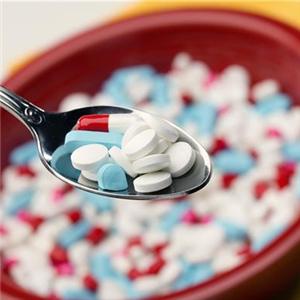| PRICES: Why those pills cost more now |
 |
 |
 |
| Written by Administrator |
| Friday, 10 April 2009 09:05 |
|
Friday April 10, 2009
YOUR report on food prices ("Why food prices stay high" -- NST, April 1), reminded me of another item whose prices have also gone up -- medicines. When the cost of petrol skyrocketed early last year, some pharmaceutical companies began to insist that doctors in private practice (like me) purchase a minimum amount of medical supplies and medi-cine -- e.g. for at least RM300 per transaction -- failing which the purchaser would have to pay transport charges. Also, apparently on a government directive, the packaging of drugs has been changed from loose packs of 500 to 1,000 tablets or capsules per container to blister packs containing fewer. Syrups, too, have to be packed in small quantities of 60ml, 90ml or 100ml, instead of the previous gallon containers. This is supposedly done to maintain hygiene and to facilitate dispensing of the medicine.Some of us who have been general practitioners for decades were rather puzzled by the justification for the packaging changes since we had never had complaints from patients about unhygienic dispensing. At the same time as this switch to smaller packages, the prices of medicine have been inflated. For example, a 1,000-tablet container of paracetamol in loose packing used to cost RM20. Now, a box of 1,000 blister-packed paracetamol costs nearly 10 times that. One gallon of paracetamol suspension used to cost about RM35. That very same medicine now has to be purchased in 60ml bottles. The price? RM2.20 for every bottle. One gallon of cough syrup was RM25. In 90ml bottles, it is now sold to doctors for RM2.40. The prices I quote here are available to doctors buying wholesale. To offset the price hike, doctors are often forced by the pharmaceutical companies to buy in bulk. The medicine prices are further marked up when sold to patients. When belt-tightening is essential, it is unfair to burden citizens with unnecessary spending. And those who are impressed with pretty packaging and enjoy the convenience of having a free measuring cup or spoon with a bottle of syrup, think again. You are being hoodwinked into paying much more than you should. Source: http://www.nst.com.my/Current_News/NST/Friday/Letters/2527542/Article/index_html |
| Last Updated on Friday, 10 April 2009 09:15 |


